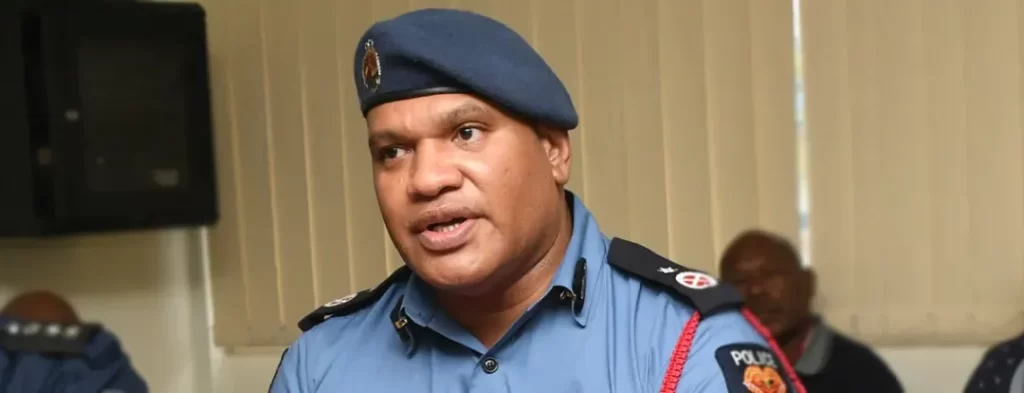The Papua New Guinea (PNG) police are launching a targeted campaign to strike at the “economic lifeline” of crime.
Police Commissioner David Manning recently announced the official establishment of the Asset Recovery and Restraint Operations Working Group (ARROW), a dedicated task force tasked with investigating and confiscating illicit gains, vowing to leave criminals “with nothing to their name.”
This newly formed cross-agency enforcement team brings together specialists from the Financial Analysis and Supervision Unit (FASU) of the Bank of Papua New Guinea, the National Fraud and Anti-Corruption Directorate (NFACD) of the Royal Papua New Guinea Constabulary, and the Office of the Public Prosecutor (OPP). Its operational framework has been formalized through a signed Memorandum of Understanding (MoU).
Unlike in the past, when agencies worked separately, the three parties will now be co-located for the first time within secure Royal PNG Constabulary facilities, significantly improving the speed of information flow and operational coordination.
Manning stated that ARROW’s mission is to closely track suspicious financial flows and rapidly gather evidence that can be used to freeze accounts, seize assets, and apply for restraining orders.
“We already have the laws in place to confiscate the proceeds of crime. The establishment of ARROW is about putting those laws into real, practical effect,” he said.
In his view, this kind of cross-agency “under one roof” cooperation will greatly shorten the time from investigation to prosecution, preventing criminals from moving or concealing their illicit assets due to poor information sharing or departmental silos.
He issued a warning to offenders: “Whether you profit from corruption, drugs, weapons, stolen goods, or any other illegal activity, be prepared to lose your houses, vehicles, and bank balances at any time — and without any warning.”
Manning stressed that advances in digital systems and modern monitoring tools have made hiding illicit funds much harder.
“The days when people could use hidden channels to shift assets are over. Today, developments in communications and surveillance technology mean that every trace of your funds could become evidence.”
He also noted that international experience shows cutting off criminals’ financial resources is one of the most effective ways to combat organized crime and can earn broad public support.
“The mandate for ARROW is very clear — go straight for the target, freeze bank accounts, seize assets, and make crime unprofitable.”
Industry observers believe that PNG’s latest move will not only help curb increasingly complex financial crimes at home but also send a clear signal — within the context of global anti-money laundering and anti-corruption cooperation, criminals have no safe haven.
MEET PNG Commentary:
PNG’s initiative aligns closely with asset recovery regimes in countries such as Australia and Singapore. Over a decade ago, Australian police established cross-agency Joint Special Operations Groups that, under the Proceeds of Crime Act, can quickly freeze assets linked to criminal cases. Singapore, meanwhile, relies on its stringent financial regulatory framework to maintain one of the world’s highest success rates in recovering corruption- and money-laundering-related assets.
By comparison, PNG in the past often lagged in asset recovery due to fragmented agencies and delayed information flow, giving criminals time to move their funds. The creation of the ARROW task force represents PNG closing this gap, moving toward international best-practice enforcement models, and signalling that the country is no longer the “weak link” in regional anti-corruption and anti-money laundering cooperation — but is instead becoming a proactive player.


